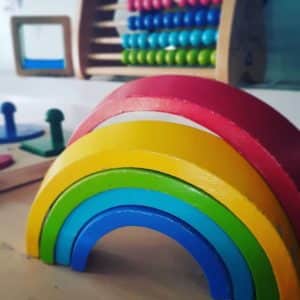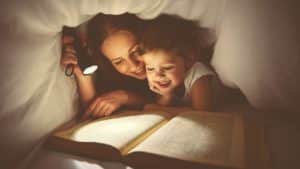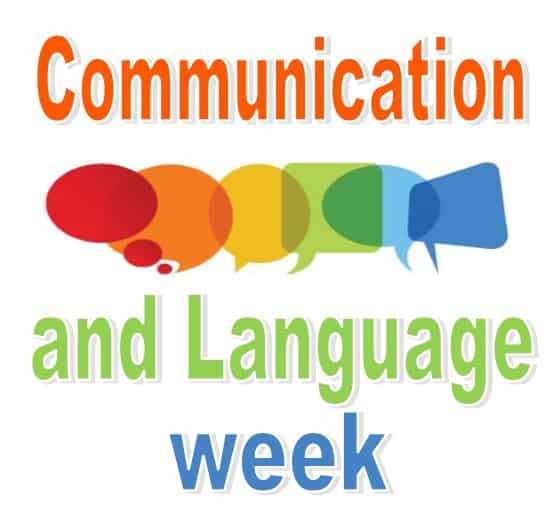Let’s get talking
This week it’s all about Communication, Language and staying connected with others.

As most of you may know, we are unable to bring our sessions and parenting workshops to you. Each week we are looking at ways to stay connected, bringing information, topics and activities to you that may be helpful. This week we are looking at communication and language, and why it is important to talk to babies, children and each other. We may be feeling less connected with others due to the current lockdown rules but talking with others helps us to take care of our own mental health and well-being, as well as taking care of others.
So why should we communicate and talk to other people?
Talking is important for each and every one of us. It helps you stay healthy and connected to others, some people don’t like to talk too much, and that’s fine we are all unique, but it can still be helpful. Let’s face it sometimes just having a chat to a friend, work colleague or family member, when we are feeling a little low can make all the difference and lift our mood, it can help us to look at a problem or situation in a new or different way. This can help us to gain new insight into the situation that is causing the problem. After talking to somebody else we may find that we are not alone, and that other people share the same feelings or concerns as us. Talking to someone and having someone we trust listen to us can make us feel supported and valued.
Talking and communicating is also fun, and a great way for us all to share good news and stay connected, whether it be a face to face conversation over a coffee, a phone call, text message, email or face timing, with friends and family. I think we have all thought of new ways to keep connected with people in our lives who we cannot be with during the past few months of lockdown.
Why should I communicate with my baby?
Babies thrive when they are nurtured, kept close, responded to in distress, smiled at, cuddled, talked to, played with and when their communication is viewed as meaningful.
“The most important resource to support a child’s developing communication and language skills is the adults around them. We know that parents are the most important things in their child’s life and that they want the very best future for their children. This is why, at our Children’s Centre’s, we follow the “Five to Thrive” building blocks for a healthy brain which was developed by Kate Cairns Associates, so we can help to support parents understand how the things they do every day can help build their baby’s brain”.
Respond, Cuddle, Relax, Play, Talk
One of the 5 building blocks of Five to Thrive, is Talk and if your baby could talk to you, this is what they would say when they hear your voice or when you talk to them.
TALK
“My brain grows better when you talk to me….. “I love the sound of your voice. I could hear well even before I was born, and when I was first born I already recognised the voices of the people I live with. I love it when you talk, when you make nonsense noises, and when you sing. I get frightened if there is too much shouting or arguing. When you talk to me I copy you. At first I can only make a few sounds, but the more you talk to me the more I can make sounds into words. I need you to tell me everything right from the start. I know nothing, so everything I learn in my life will be built on what you are teaching me now. Involve me in life by telling me about it. I need you to listen to me as well. Remember that my brain works more slowly than yours, so it will take me time to respond when you speak to me. When I make sounds to you, it really helps the connections in my brain if you look straight at me and copy the sounds back to me. Then I know you are listening to me, which makes me feel I matter. As I get older, take notice of what I am trying to say to you. Help me to tell you how I feel, so that I learn to manage my feelings by talking about them. Reading is a great way to talk to me. Looking at a book together helps me to focus my eyes, to concentrate, and to think in a logical way. I can enjoy looking at a book with you right from the start of my life. And helping me to be interested in books and reading gives me a good start for learning through all my life”.
We are all social beings and are ready to communicate with others from the minute we are born. Your baby is already amazing, but they need your help from birth to fully develop and practice their communication and Language skill to become a fully social human. Talking, singing, smiling and listening to your baby will help to develop their brain and cognitive skills. Your baby was born with a brain that has a huge capacity for learning, and most of their brain development happens before they are three. This is the crucial time to help your child learn to develop their language and communication skills.
So, take some time out to spend time having fun talking, singing, laughing and communicating with your baby. Starting early will help your baby get off to the best possible start in life.
Communicating seems to be an in-built drive for babies and children, and non-verbal communication is just as important for their development as spoken communication.
And good news Parent’s! “You don’t need to be an expert in communication to help your baby and child 
Reading with your child at an early age encourages them to find joy and excitement in books and the written word. I remember the joy and closeness I felt when I read with my child, there was always a favorite book that she would want me to read over and over again, and although at times I would have liked her to choose a different story, we both still enjoyed the loving environment reading together created, it helped her associate reading with warmth and closeness and this conditioned her mind to feel that reading is a positive, pleasurable activity for us both. Reading also helps to support and strengthen a child’s early writing skills reading improves vocabulary and language skills. Children learn new words as they read. Subconsciously, they absorb information on how to structure sentences and how to use words and other language features effectively in their writing and speaking. Books also help a child to create their own story and write about it. We all need to be able to read and write in order to communicated properly with others and society.

Listed below are some Top Tips and Benefits of talking with your baby and young child from the National Literacy Trust which you may find helpful.
Top tips for talking with your child:
- Talk to your child when you’re playing together.
- Get into their zone and talk about what they are looking at or playing with – they will learn language faster that way.
- Have fun with nursery rhymes and songs, especially those with actions. Check out Laura’s videos on our Facebook page
- Encourage your child to listen to different sounds, such as cars and animals. This will help your child’s listening skills.
- Gain your child’s attention when you want to talk.
- Increase vocabulary by giving choices, e.g. “Do you want juice or milk?”
- Talk about things as they happen, e.g. when you’re both unpacking the shopping.
- Listen carefully and give your child time to finish talking. Take turns to speak.
- Always respond in some way when your child says something.
- Help your child to use more words by adding to what they’ve said, e.g. if they said “ball” you might say, “Yes, it is a big, red ball.”
- If your child says something incorrectly, say it back the right way, e.g. “Goggy bited it.” “Yes, the dog bit it, didn’t he?”
- Try and have special time with your child each day to play with toys and picture books.
- Limit TV time. Try to watch TV together so you can talk about what happens.
Talking to your baby matters
Here are some of the benefits:
- It will help your child learn to talk, as it is from listening to your voice that babies learn to use language.
- It will stimulate your baby’s brain, helping to strengthen the connections that make learning possible.
- It will help your child become a good reader and writer, because language skills form the foundation for literacy.
- It will help your child develop social skills and good relationships.
- It will show that you love and respect your child, enhancing self-esteem.
- It will help the two of you form a close bond – communication is the basis of your relationship with each other.
The National Literacy Trust has lots of helpful information on helping your baby and child’s communicating and language development. Just go to the link below:
https://literacytrust.org.uk/resources/tips-talking-your-baby-and-young-child/
When your baby or child starts at a nursery, pre-school, reception class or with a registered childminder they will be following the Early Years Foundation Stage Statutory Framework, also known as the (EYFS). It specifies reqirements for learning and development for all children from Birth to five years and promotes teaching and learning to ensure your child’s school readiness.
Communication and Language are key areas of focus in the Early Years Foundation Stage Framework. The EYFS involves observation and assessment of children’s development through play-based activity. Early identification of communication problems is essential to ensuring children get the help they need to develop their language skills.
In the Early Years Foundation Stage, Communication and Language is broken down into three aspects:
- Listening and attention
- Understanding
- Speaking
Listening and Attention – Through positive relationships children respond to eye contact, verbal and non-verbal interaction; they anticipate and initiate communication with others, learning to respond in many ways. Children do this through listening to others, watching and imitating them and through joining in with rhymes, stories and games using sounds and words. In this way they learn to attend to important features of communication and to respond, eventually being able to divide their attention between what is being said and what they are doing.
Understanding – Understanding what has been said to them, saying things to others, being treated as a communicator and sharing in talk with others is all part of the communication process. In this aspect of communication and language children will show understanding in many ways, including by responding appropriately to what somebody has said, following instructions and responding to and asking questions to check out meaning. Their understanding of what is being said to them far outweighs what they can say. Every experience a child has will extend their understanding if adults are there sharing the experience and helping them.
Speaking – As babies move through their first attempts at communication amazing things happen – they begin to say words and can communicate meaning even though they may not have words for all the things they want to tell us about. The store of words that children build up will help them to be effective and skillful communicators and, with help, and through hearing the correct use of language, toddlers and young children will internalise the rules of grammar – sometimes trying out combinations of words to make short phrases and sentences – like ‘me do that!’ or ‘my going to the park’. In this process they develop ways to express themselves based on their own ideas and experiences.
As well as communicating through words and gestures, children begin to communicate their ideas by making marks and many other activities – sometimes on the settee or the wall (but usually on paper) – at the beginning these marks are simply physical explorations of what the child can do and what the paint, felt tip or pencil will do, but eventually children begin to give some meaning to the marks they make and this can lead into many types of communication including drawing, writing and creating pictures or models. Additionally children communicate through the creative and expressive arts and through the ways they express their unique personalities. They also realise that as well as human beings communicating with them, books, mobile phones and TVs have something to communicate too! So toddlers choose favourite story books to look at and flick through photos on mum’s phone saying ‘that’s me’ or maintain interest for a while in very short TV programmes.
There will be lots more information, activities and ideas that can help support your child’s language and communication throughout the week on our Facebook Page and the activity page on this website, including making your own Elmer the Elephant.
I hope you have found this informative and interesting. If you have leave a comment and share our page, so that we can reach more families, spread the word and stay connected.
Remember to take care of yourself and look out for each other, by spreading the kindness we can all help each other feel connected and stay safe.
See you next week
Donna




